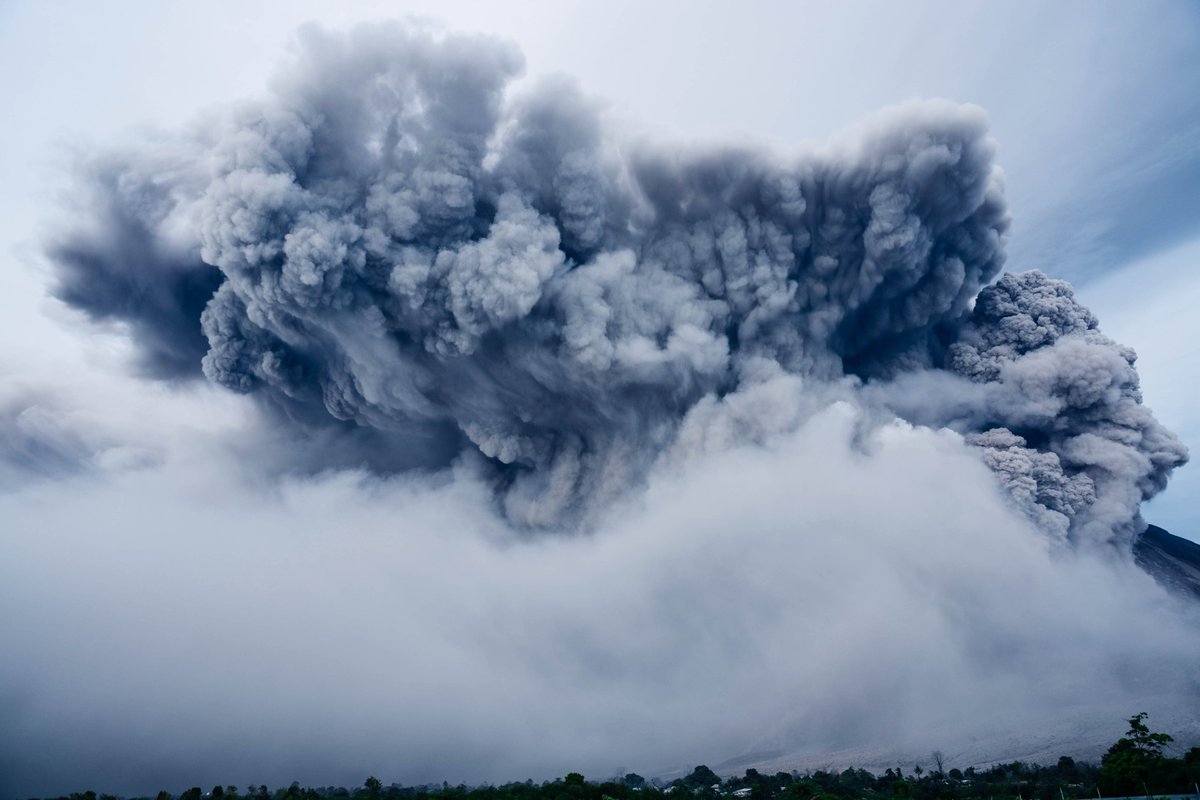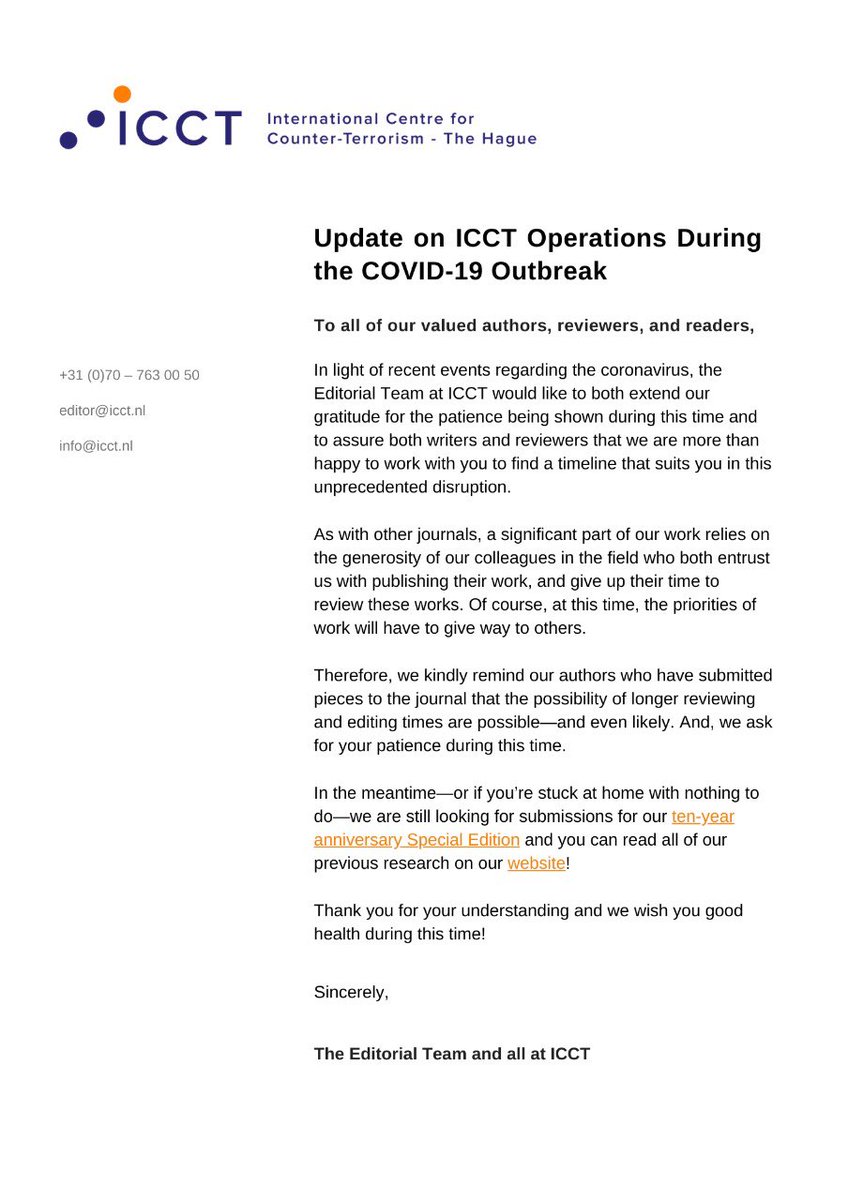Happy new year from all at ICCT! 2019 saw the continued aftermath of the fall of the caliphate, the (attempted) returns and prosecutions of FTFs, and the persistent rise of right-wing extremist attacks in the West. Take a look back at 2019 through some of this year's research! 

With the end of the caliphate came the detention of #ISIS fighters, supporters, and innocent civilians alike in camps like #alHol and #AinIssa; @GinaAVale of @ICSR_Centre and @warstudies analysed the role of IS-affiliated women in these camps and beyond. icct.nl/publication/wo…
During the caliphate, ISIS specifically targeted children and adolescents, combining religious indoctrination and weapons training to mould them into child soldiers. @janilkiz provided recommendations for the psychosocial care for these ex-child soldiers.
icct.nl/publication/pr…
icct.nl/publication/pr…
In 2019, Western governments came under pressure to repatriate their FTFs. @tanya_mehra1 analysed these developments across 2019, concluding that "there are clear and significant moral and legal grounds for European countries to repatriate their citizens". icct.nl/publication/eu…
According to @GlobPeaceIndex's 2019 GTI, far-right attacks increased by 320% over the past five years. In November, @sjacks26 presented a schema of right-wing extremism across the United States, and discussed the possibility of it being applied elsewhere. icct.nl/publication/a-…
Focusing on a group which gained media attention in 2019—including due to the recent high-profile arrest of Bruce-Umbaugh in Washington—@Jacob_A_Ware provided a necessary briefing on the Neo-Nazi group #Atomwaffen. icct.nl/publication/si…
The increasing transnationality of #RWEX was an important trend in 2019. In addition to such international linkages, @GIRD_S presented research on the links within countries—incl. US, Germany, and the UK—between far right extremists and the military. icct.nl/publication/a-…
Looking beyond 2019 to the future of the terrorist threat in the decade to come, @reinierbergema and Tom Middendorp warned of the nexus between #climatechange and violent extremism, and its threat multiplying effect, already evident in the Western Sahel. icct.nl/publication/th…
In the realm of critical infrastructure interdependencies, @BillBanksINSCT and Katja Samuel similarly presented warnings for the future, emphasising the vast cyber vulnerabilities across the West and beyond to possible future hybrid terrorist threats. icct.nl/publication/hy…
In addition to publishing, ICCT and @BartSchuurman3 reflected on the usefulness of such research to the CT community—finding that researchers should not strive to sit in the policymaker's seat but provide dispassionate, well-informed and critical advice. icct.nl/publication/co…
We finished 2019 with innovative research from one of our 2019 Visiting Fellows @ColinPClarke, using a novel framework to analyse and predict the longevity of #alQaeda. icct.nl/publication/us…
A huge thank you to all of our wonderful authors, researchers, fellows, followers, and the CT community who have made 2019 so productive🌍Tweet us and let us know what #counterterrorism topics and regions you think will matter most in 2020! and #happynewyear2020 from The Hague! 

For all of our other research and policy briefings, as well as author and submission guidelines, and information on ICCT's many on-the-ground CT, PVE, and R&R projects check out the #ICCTJournal, icct.nl, and follow @ICCT_TheHague!
icct.nl/publications/
icct.nl/publications/
• • •
Missing some Tweet in this thread? You can try to
force a refresh









